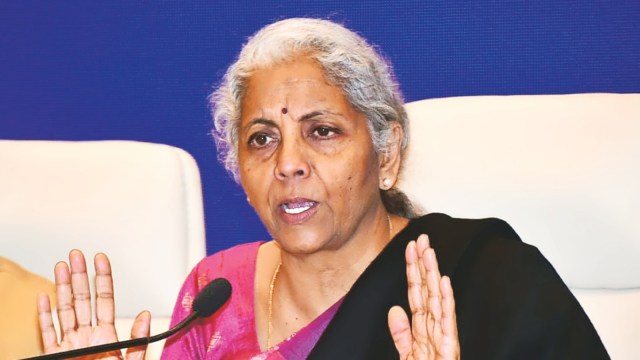Rs 18,000 crore expected in investments from central public sector undertakings (PSUs).

With Rs 3,000 crore budgeted for the National Mineral Exploration Trust (NMET) and
Story continues below this ad
Rs 4,000 crore for the Geological Survey of India (GSI), the NCMM targets 1,200 domestic critical mineral exploration projects till 2030-31. The Ministry of Mines also aims to auction over 100 critical mineral blocks by then.
A boost in exploration of critical minerals will provide potential investors with key data on reserves, which in turn will increase interest and participation in auctions. Till now, GSI has undertaken 368 exploration projects over the past three years, with 195 projects currently underway, and the mines ministry has auctioned off 24 critical mineral blocks.
Prime Minister Narendra Modi hailed the NCMM as a “major step towards self-reliance” in critical minerals. “The Union Cabinet’s decision on National Critical Mineral Mission will encourage India’s high-tech, clean energy, defence and other key industries,” he posted on X.
Under the mission, an additional Rs 5,600 crore is allocated to the NMET to finance risk coverage for foreign sourcing and to support exploration activities outside India. The mines ministry seeks to amend the Mines and Minerals (Development and Regulation) Act to enable the NMET to fund the proposed activities of the mission. Announced by Finance Minister Nirmala Sitharaman in last year’s Union Budget, the mission aims to strengthen India’s critical minerals value chain by building a technological, regulatory, and financial ecosystem to ensure mineral availability from both domestic and foreign sources. The mission is set to boost access to raw materials used across strategic sectors, from clean energy and electronics to defence and agriculture.
Story continues below this ad
NCMM will receive Rs 1,000 crore from the Anusandhan National Research Foundation (ANRF) and other R&D schemes, and Rs 2,600 crore in budgetary support. In a meeting with officials from the Department of Economic Affairs in November, the mines ministry had proposed external funding for the NCMM through the World Bank’s Resilient and Inclusive Supply-Chain Enhancement (RISE) initiative. As of February 2024, only $50 million have been pledged as initial contributions to the RISE initiative, with Japan contributing $25 million and the remaining from other countries, including Canada, Germany, Italy, the Republic of Korea, and the UK.
Through the past year, the mines ministry led stakeholder consultations to develop the mission’s framework, including a public seminar in August where it identified key areas of support, including a Production Linked Incentive (PLI) scheme for mineral recycling pilot projects. The mission envisages an incentive scheme for mineral recycling to the tune of Rs 1,500 crore targeting 400 kilotonnes (kt) of recycled material, which will be prepared in consultation with the Ministry of Finance. Under the mission, central PSUs and their joint ventures will be expected to invest
Rs 18,000 crore. These include Khanij Bidesh India Ltd (KABIL), Coal India Ltd, National Mineral Development Corporation, NTPC Mining Ltd, Neyveli Lignite Corporation India Ltd, Steel Authority of India Ltd, Indian Rare Earth Ltd, Oil India Ltd, and ONGC Ltd. NCMM also targets the acquisition of 50 critical mineral mines abroad, by both PSUs and private companies. So far, KABIL, under the mines ministry, has acquired over 15,000 hectares in Argentina’s Catamarca province for the exploration of lithium.
“The Government of India will motivate Central PSUs and encourage private sector companies to allocate funds for acquiring critical mineral assets overseas, empowering Central PSUs, their joint ventures, and subsidiaries to invest abroad by issuing necessary guidelines,” according to a note on the mission.
Story continues below this ad
As part of the mission, the government also plans to create four mineral processing parks and prepare separate guidelines for the recycling of critical minerals, with a focus on streamlining India’s massive informal recycling sector. NCMM also seeks to promote Critical Minerals Partnership Agreements with resource-rich countries and to integrate chapters on critical minerals in existing bilateral trade agreements with countries of interest.
“The mission is also an invitation for international partnerships and global investment opportunities. India has already taken significant steps in this direction, with agreements signed with Argentina, Zambia, and the United States, among others. These partnerships are critical for diversifying supply chains and securing access to mineral-rich regions,” Union Mines Minister G Kishan Reddy said. The mission will be coordinated by an Empowered Committee chaired by the Cabinet Secretary.

































